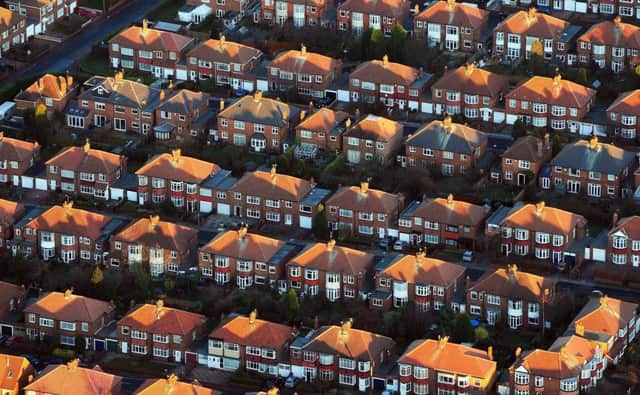Welcome to the club where it takes 100 years to buy a house


Well, they could have to scrimp and save for 100 years to buy their first property, according to a new study. The survey, from online estate agents HouseSimple.com, shows the colossal financial challenges faced by many people who want to own their dream home.
A spokesman from HouseSimple.com said: “With UK property prices at record levels, first-time buyers are continuing to struggle to get a foot on the property ladder. But spare a thought for the school lollipop ladies and gentlemen, who are responsible for the safety of our children on the way to school. With an average annual salary of less than £3,400, they would have to save for 552 years to have a large enough deposit to purchase the average first-time buyer property.”
Advertisement
Hide AdAdvertisement
Hide AdHouseSimple.com, the pay-as-you-go online agent, has compiled a list of the workers who it believes could have to save for 100 years to obtain a deposit on a £202,765 property, which is the price of an average first-time buyer property in the UK. The figures have been compiled by using annual salaries data from ONS - the Office for National Statistics.
HouseSimple.com has calculated this on the basis that savers would put aside 10 per cent of their net salary every year for a house deposit, and that the maximum mortgage loan they could secure would be four-and-a-half times their gross annual salary. Members of the “100-year club”, include services that we rely on or use regularly, such as care workers, hairdressers, cleaners, teaching assistants, fishmongers and poultry dressers.
The spokesman added: “For example, on the average nursery nurse’s salary, it would take an individual 135 years, saving 10 per cent of their salary a year, to afford to buy the average first-time buyer property in the UK.
A care worker would have to save for almost 125 years to have a large enough deposit to buy an average first-time buyer property.”
Advertisement
Hide AdAdvertisement
Hide AdAlex Gosling, the chief executive of HouseSimple.com, said: “Affordability is a major problem in this country, and members of the ‘100-year club’ are at the extreme end of that problem.
“When you’re more likely to receive a telegram from the Queen before you can buy the average first-time buyer property in the UK, there is something fundamentally wrong with the housing market.
“Of course, there are plenty of areas of the country where house prices are within reach of people earning lower incomes.
“However, large swathes of the South of England and London are so far out of reach of low-income earners, that the dream of home ownership is an impossible one, without a big withdrawal from the bank of mum and dad.”
Advertisement
Hide AdAdvertisement
Hide AdIain Clacher, an associate professor at Leeds University Business School, said: “One of the biggest economic challenges the Government faces is the desperate shortage of affordable housing in the UK.
“The fact that someone would have to save for over 100 years is hardly surprising...House prices are simply a bubble, propped up by successive governments who have no interest in social housing stock or affordable housing stock. Like all bubbles, house prices will have to fall when the bubble bursts.
“Many people will not be able to afford the mortgages they have if interest rates return to anything like normal; this means that the banks have once again lent too much money to people who cannot really afford it.
He added: “Many people’s sense of economic health is tied up to their property, they feel rich and consume when house prices are high, and feel poor when house prices are falling. If house prices fall, home owners in many instances will feel poorer and consume less.
Advertisement
Hide AdAdvertisement
Hide Ad“Some will default and become insolvent, leaving banks with bad debts, and just at the point where ‘generation rent’ may be able to afford to buy, the banks will not be lending.. When it comes to housing in the UK, there is simply no good economic news and the longer we prolong the correction, the harder the fall will be.”